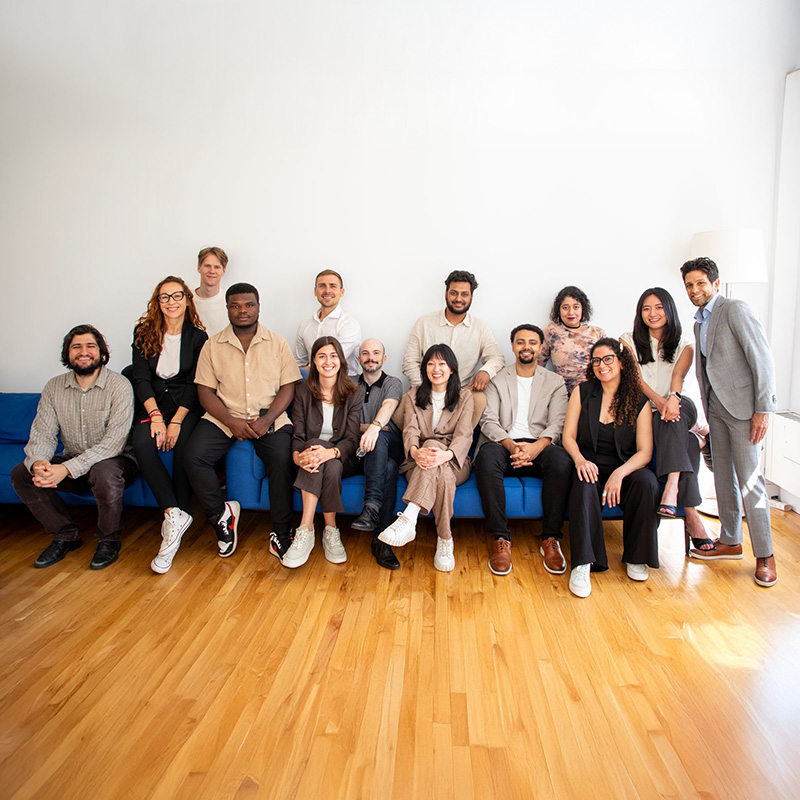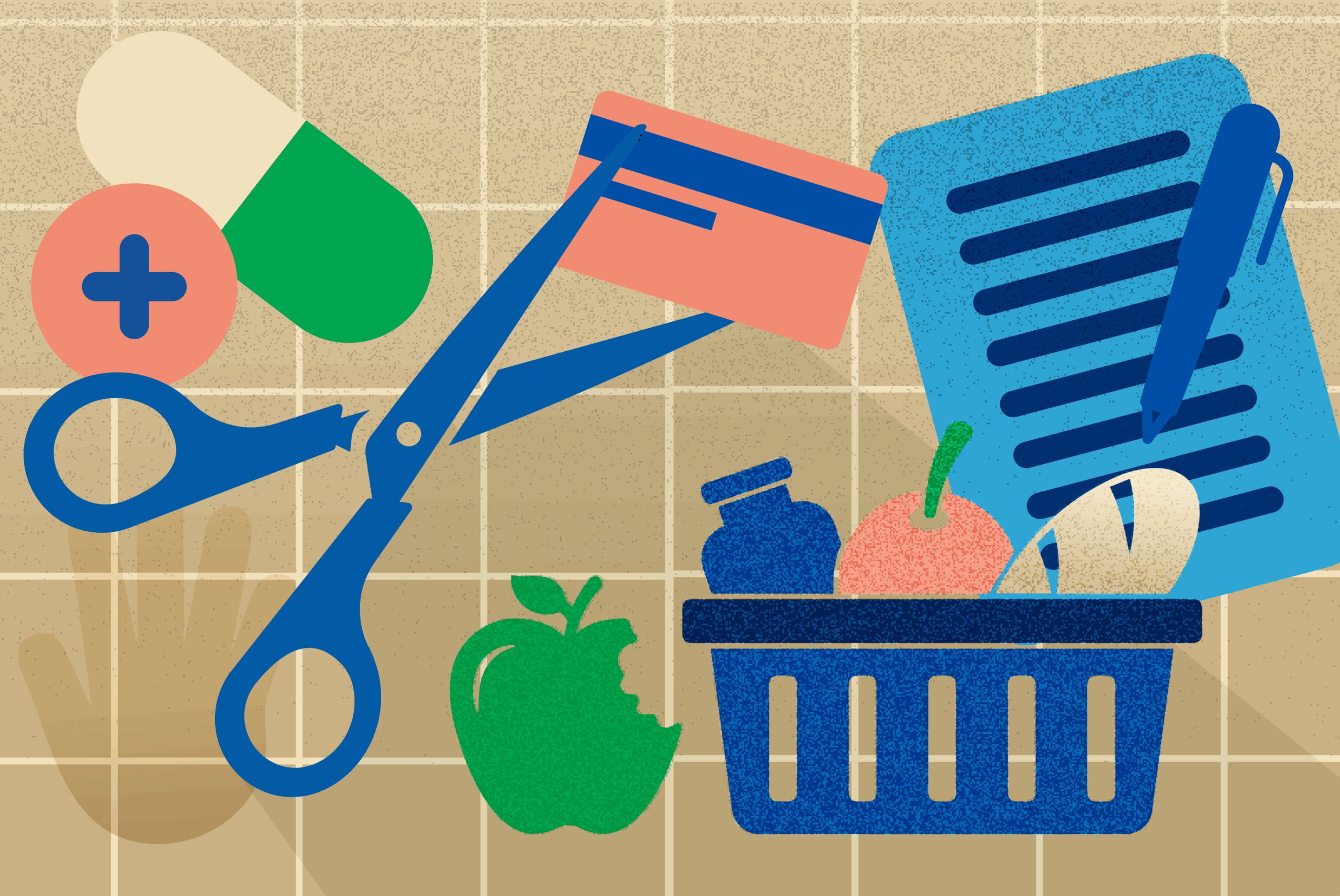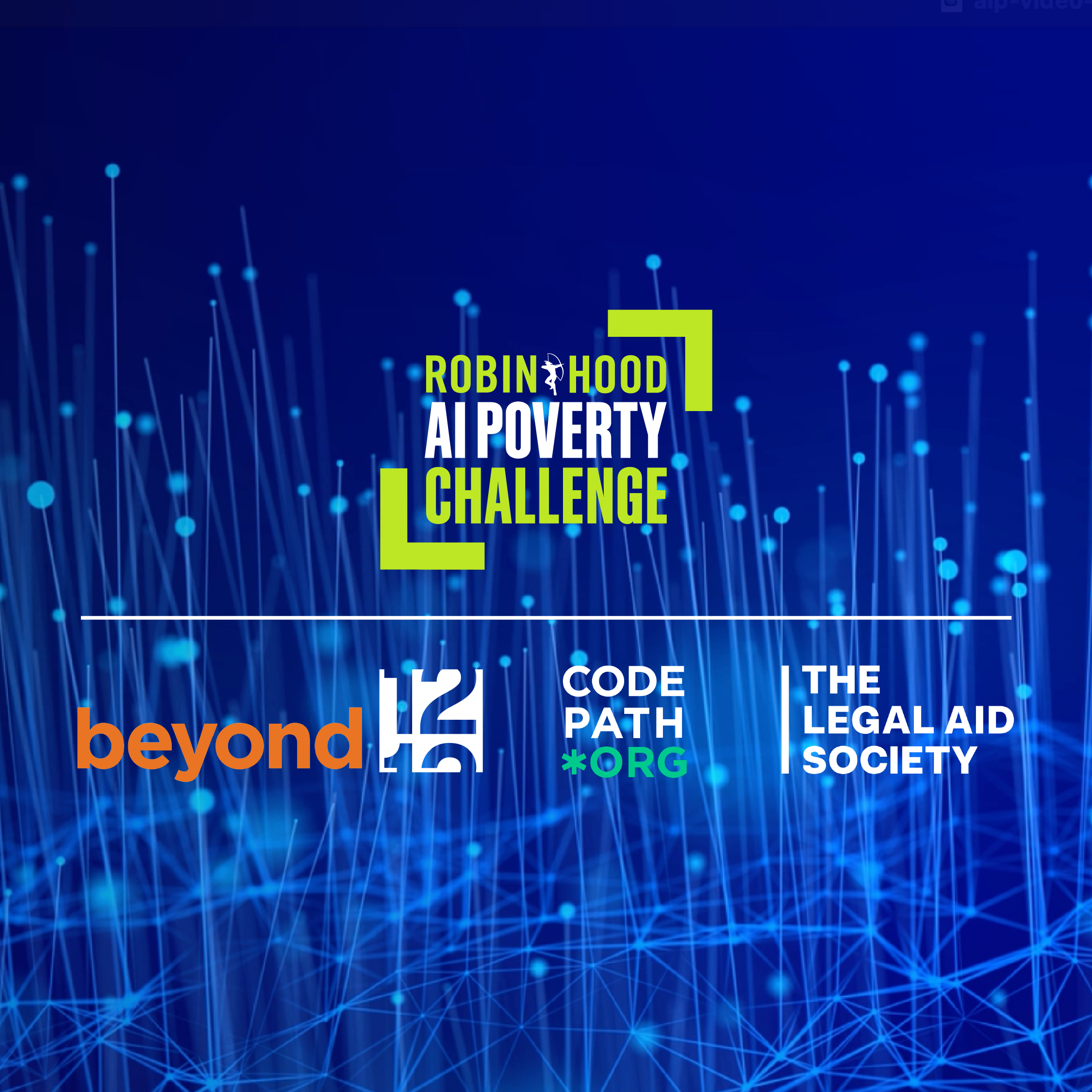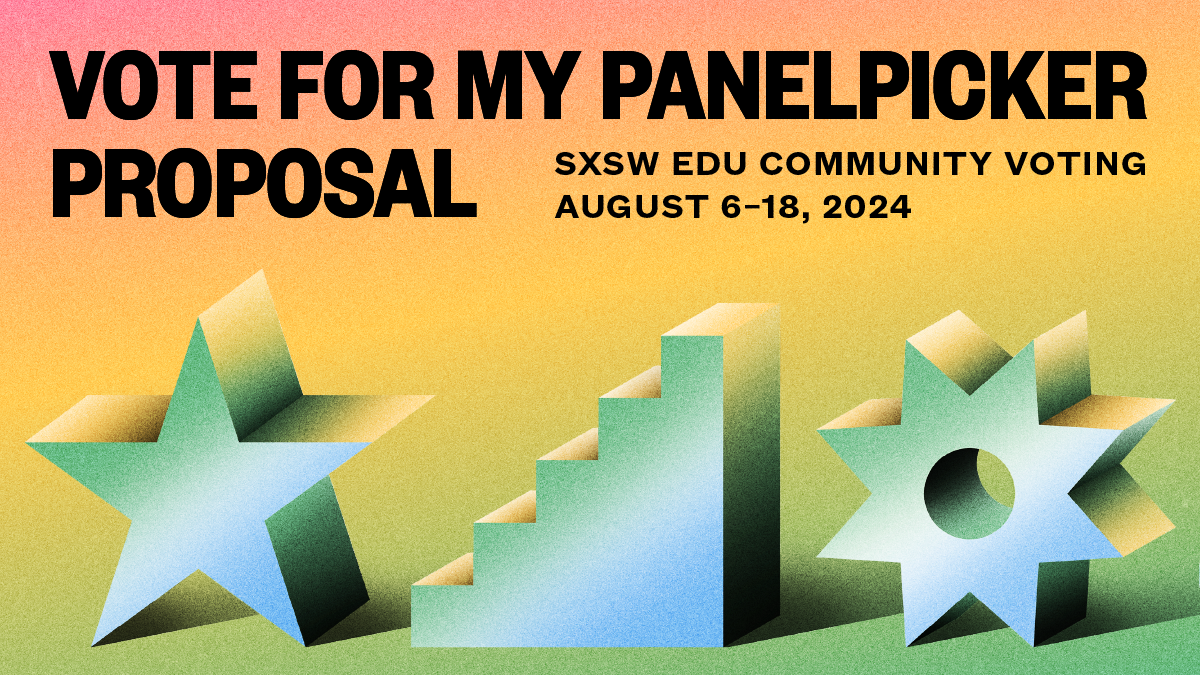Sep 22, 2020
Reflections on Convening 2020: “Mobility LABs…in Community”
By Lori Boozer, JD, Mobility LABs Senior Program Officer
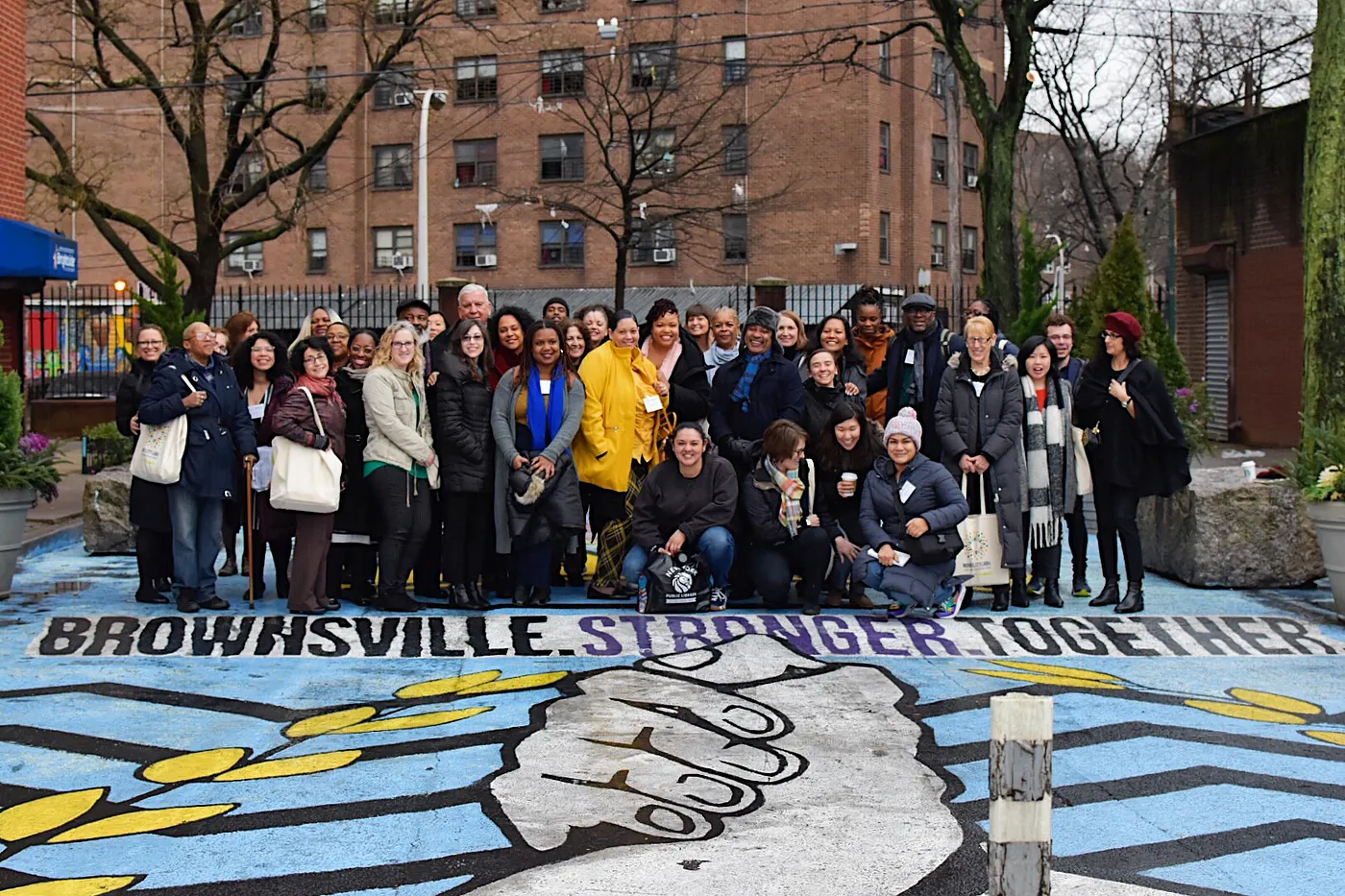
Mobility Learning and Action Bets — or Mobility LABs — is a four-year initiative to spur the development of new solutions to sustainably lift families out of poverty, and to promote dynamic leaders who will change the national conversation around mobility. Mobility LABs is supporting nine local anchor partners leading work in five demographically and geographically diverse communities across the country. In February 2020, Robin Hood hosted the first convening of all anchor partners in New York City.
In February of 2020, before the pandemic struck (barely before it), the Mobility LABs team hosted its first convening of its national partners. Local Anchor Partners traveled from all five geographies (the Bay Area, New York City, Suburban Cook County, IL, Northeast Pennsylvania, and Baltimore, Maryland). The theme of this year’s convening was “Mobility LABs…in Community.” With a sizable chartered bus, the convening took all participants on a crisscross to the three New York City boroughs where LABs partners are located — Brownsville, Brooklyn, Flushing, Queens, and the South Bronx.
Each Community hosted a different theme as follows:
- Brownsville: The Impact of Philanthropy on Communities of Color (Successes and Challenges)
- Flushing: Building Coalitions
- The South Bronx: Organizing for Change.
As a team, Mobility LABs hoped to create space for sharing, growth, and reflection across communities. Despite perceived differences, cities have more in common with one another than is often realized. While I cannot describe all the excitement of those three days in such a short space, I do want to remember not just what the convening was about, but that I hope we were each able to connect with our deepest selves and our motivation to do this work.
Mobility LABs is predicated on the notion that “those who are closest to the problem are also closest to the solution.” Others describe this as “proximity” and the need to involve community members’ voices in the process of addressing their concerns. Like other well-meaning entities, philanthropy tends to act on the Community rather than act with Community. In this dynamic, philanthropists (or other stakeholders) rely heavily on data to assess community needs.
Many then fund or support organizations to meet a given directive, often without any real participation from community members. The definition of participation and, to a greater extent, power is also unclear. Communities frequently speak about “planning fatigue” — the innumerable amount of times interested parties come into Community to elicit information but fail to return with a solid plan that reflects what the Community expressed.
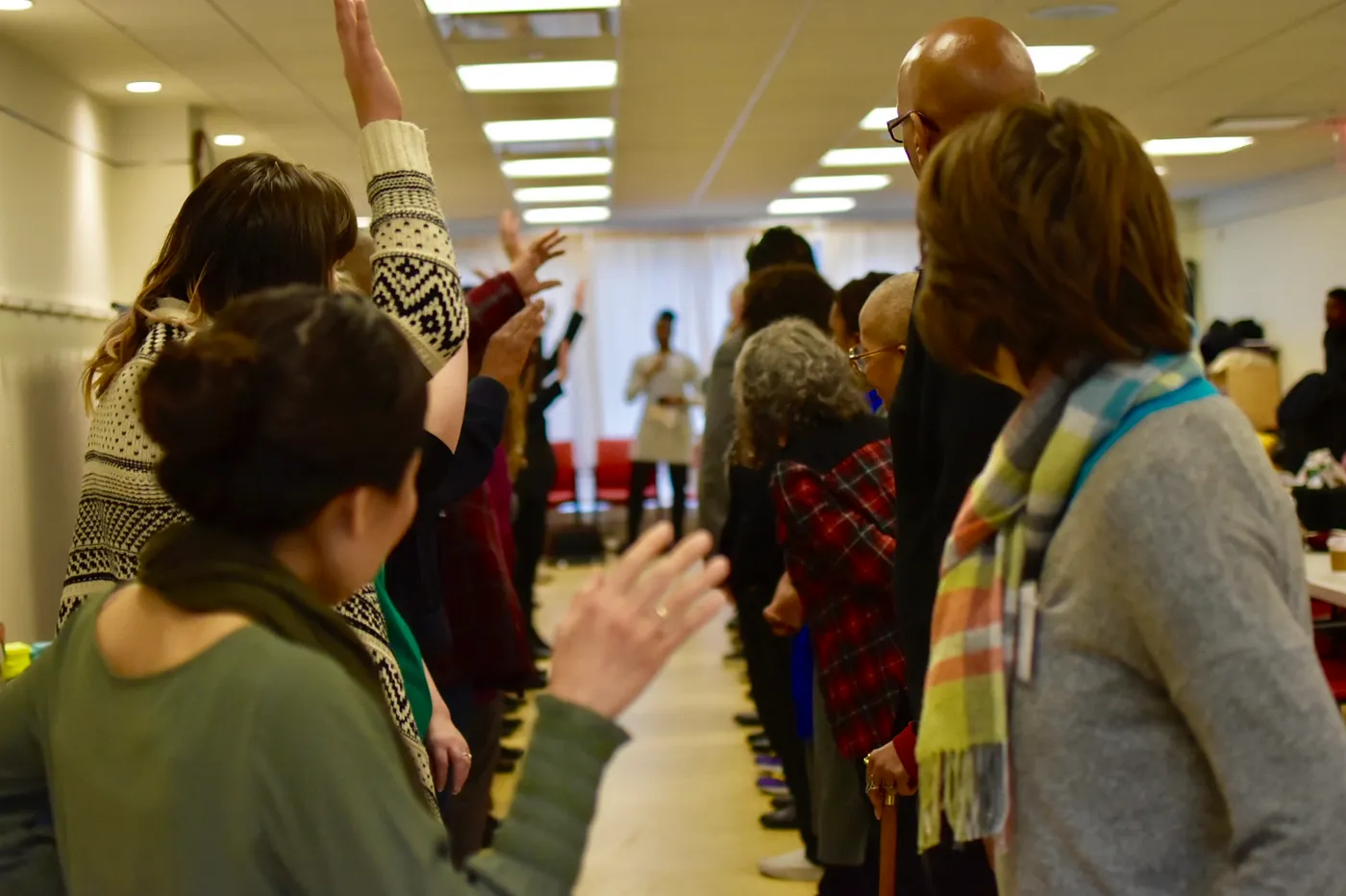
The three-day Mobility LABs convening kicked off with group exercises at the Chinese American Planning Council in Flushing, Queens.
Enter Mobility LABs, certainly not a new concept — a hybrid of collective impact and network-building designed to be both “data-driven” and “heart-led.” During the convening, I saw how important it was for community members to be a part of this journey. Executive Directors and Program Managers are essential. However neighbors, friends, everyday people who know the pulse of the land far better than a non-profit organization ever would are just as integral, if not more so. The sense of empowerment and hope when allowed to determine one’s own destiny is the sweet spot where I hope to see this initiative rest.
We must move from tokenism to power-sharing, trust, power-transference, and full ownership to make room for Communities to design their own paths forward. We must step away from disenfranchisement and paternalism as it exists in dictating to the “poor” what they can and cannot do or what they should and should not want.
There were many proud moments over those three days, too many to name. I met Gene Brady, broke bread with the cohort, had conversations of pain and triumph, and watched people bond over laughs and drinks. Most special to me was walking the cohort through my old stomping grounds in Brownsville, one of the most economically impacted communities in Brooklyn.
I dare not say that I am “proximate” to the solution as it stands today, having moved from Brownsville a few years ago. But the experience of poverty never leaves — it rides with me every day. It permeates the work that I do, the reason I do it, and the perspective I bring to difficult conversations about race and privilege in America. I consider it an honor to come from a community with such pride in its people and fight to protect its identity. The tall brick NYCHA buildings, murals, trips to public assistance with my mother and watching her self-sacrifice never leaves my spirit. I doubt she would describe her work as helping me achieve economic mobility, but that is what she was doing.
Though my body does not walk the halls at 301 Sutter Avenue, 301 Sutter lives in me. The seniors that allowed me to sit in the tenant patrol meetings as they plotted rent strikes for lack of repairs influenced me to tell this world who I am and where I come from, as we all should. Making a difference in the world is a part of my DNA.
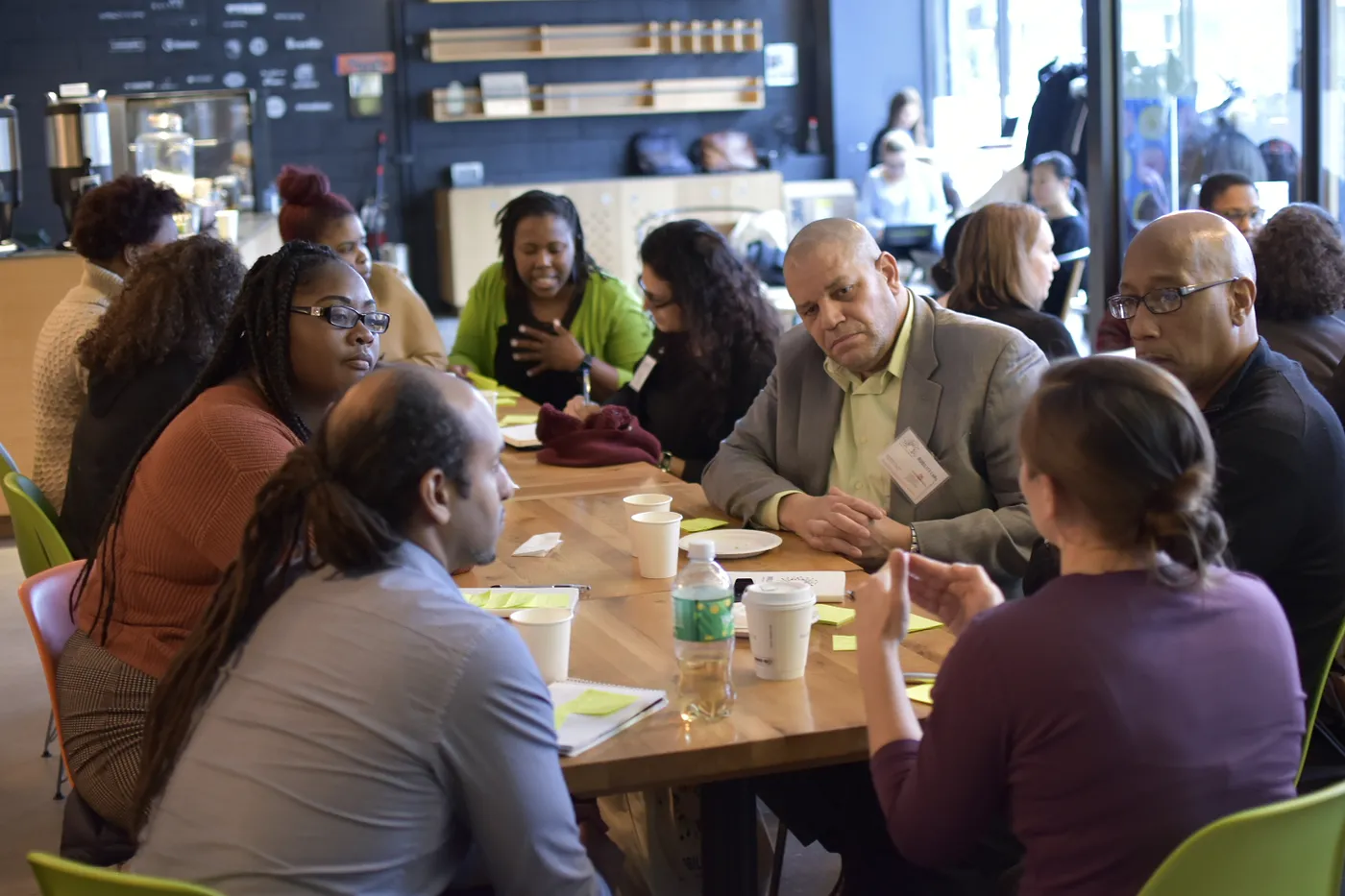
At the Brownsville Community Culinary Center, partners discussed the impact of philanthropy on communities of color.
Those moments of watching people engage with authenticity remind me why community voice and power are so important. Along with the Mobility LABs team and its committed partners, I continue to challenge the limits of what authentic engagement and community building should reflect. The convening, “Mobility LABs…in Community,” was more than a trip East for conversation. It was about listening, supporting, acting with our partners-remembering the history that led us to this point in time, and working with intentionality to write a new history.
